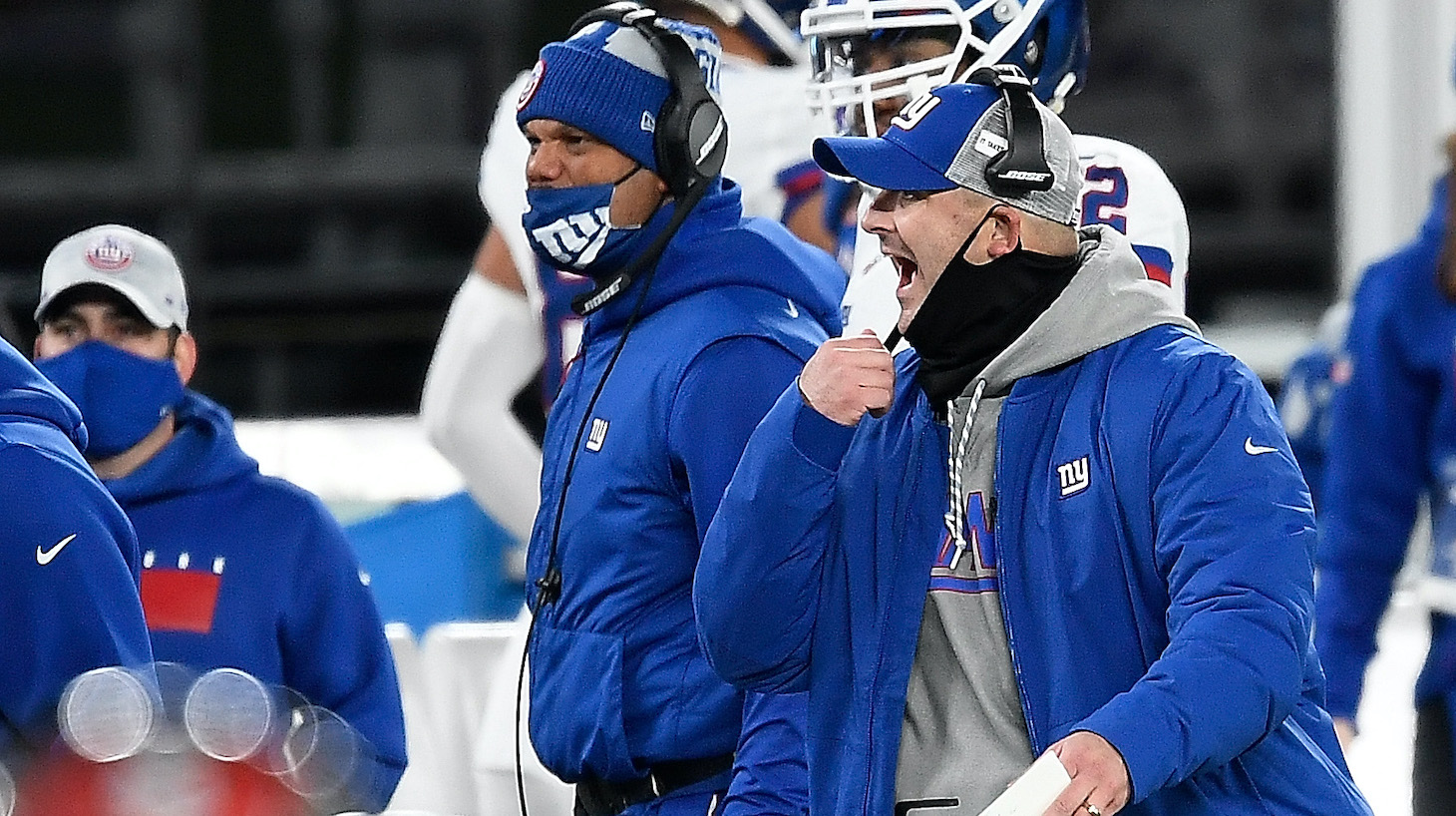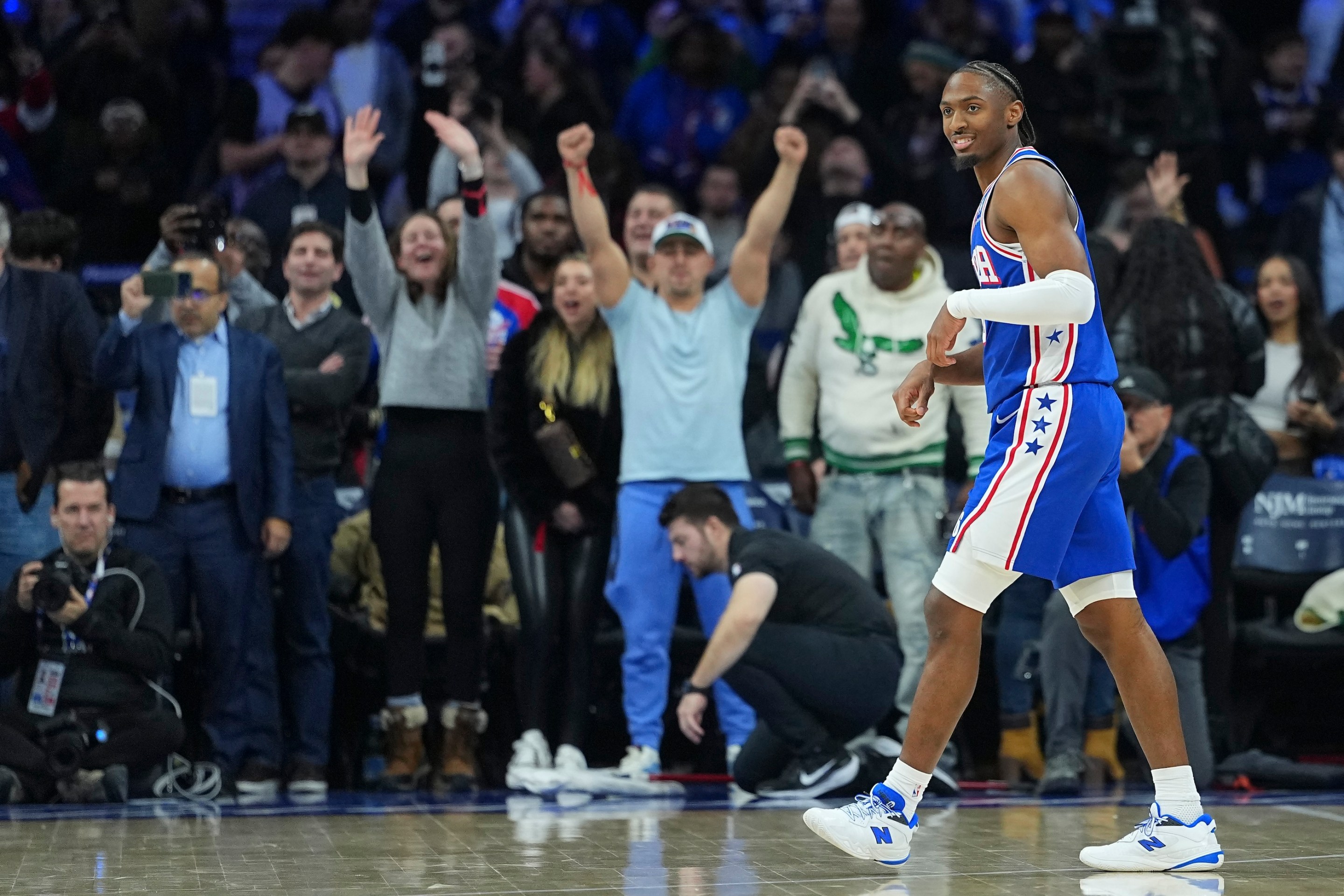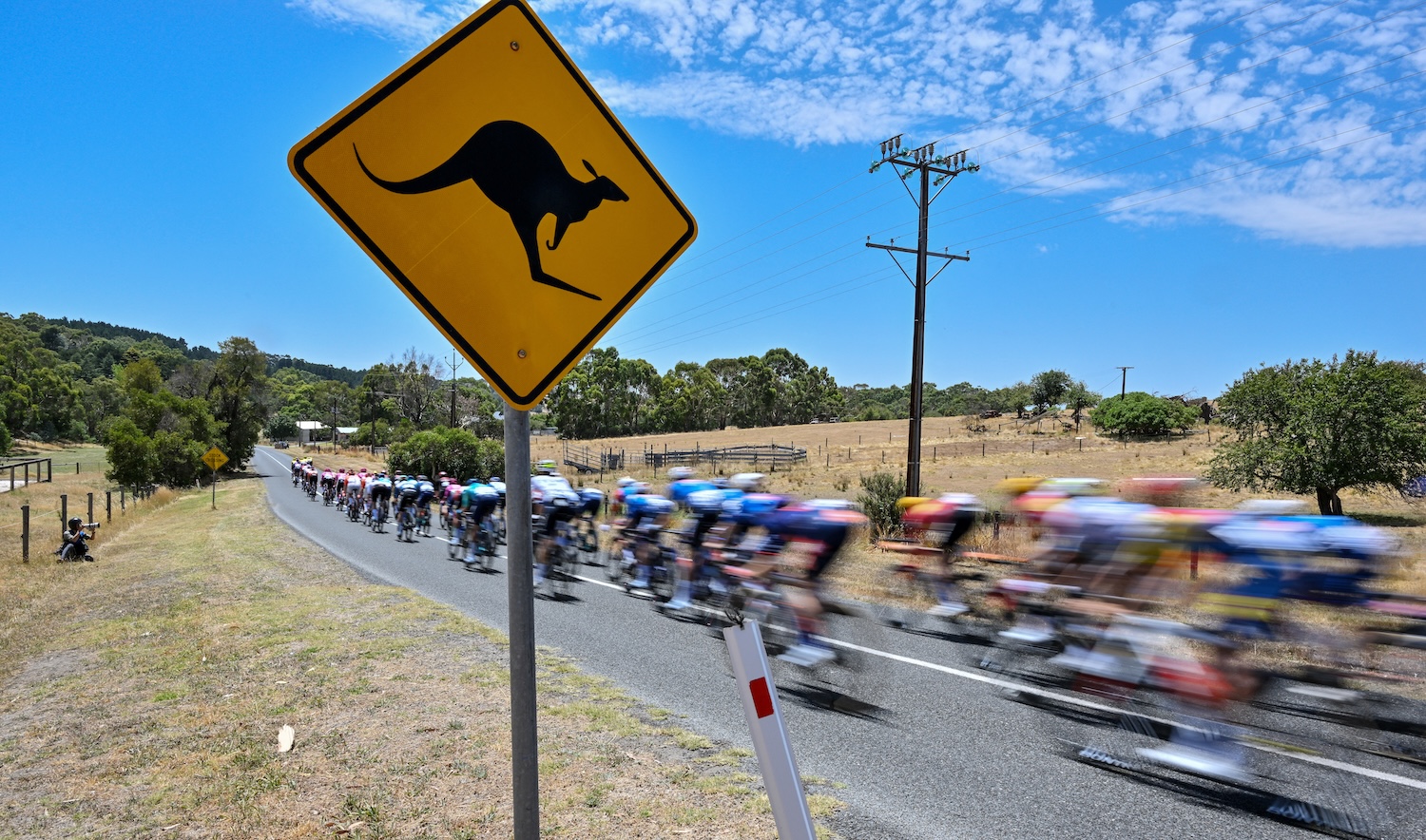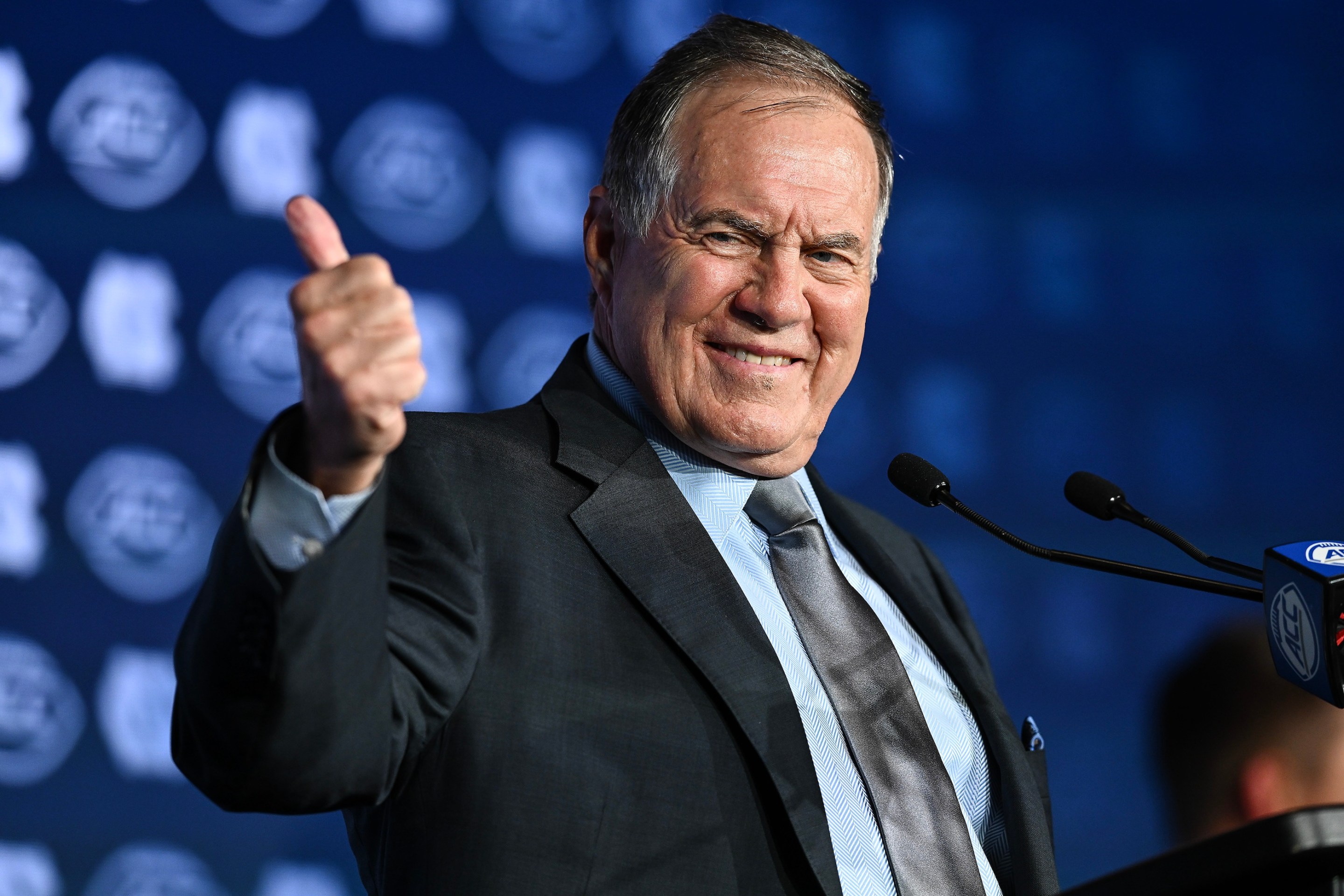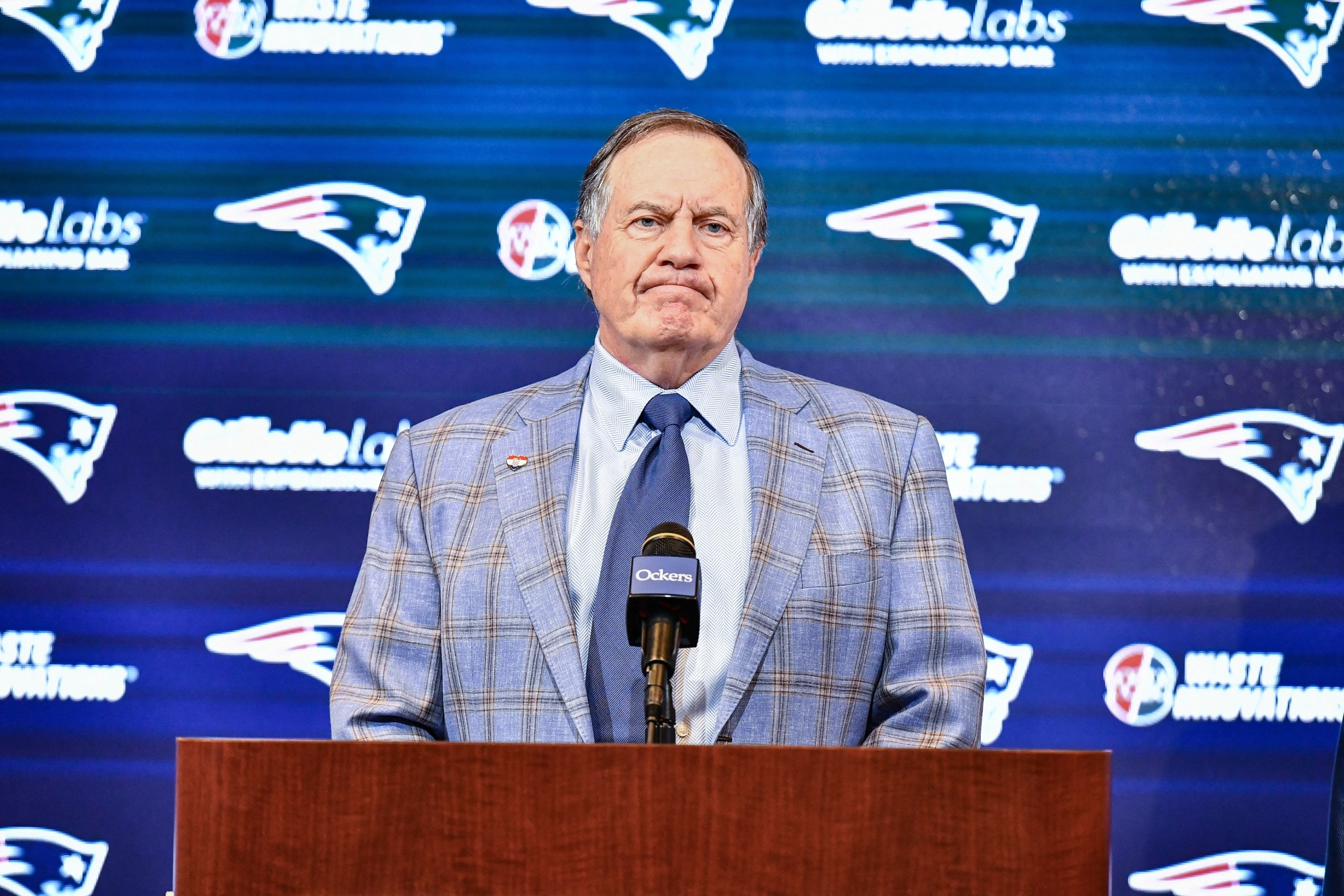The first thing you want to do, anytime there's a bang-bang call or no-call made, like the picked-up flag for defensive pass interference on a two-point conversion attempt that gave the Buccaneers a 25-23 win over the Giants rather than send the game to overtime, is to watch it at full speed. No replays, no slow motion, just how it looked to the human eye in real-time. You want to do this to appreciate how fast professional football players move and how trying to police their momentum and timing can be skewed by viewing under the artificial conditions of slow-mo, but you also want to do this because that's how the officials have to do this, now and as before.
This offseason, the NFL quietly and with great relief dropped its one-year experiment with making pass interference calls reviewable. The Competition Committee didn't even bring it to a vote, because not a single team supported it. "Nobody is putting forward the OPI/DPI review again so that dies a natural death," committee chair Rich McKay said at the time, adding that "we were always fearful of putting a totally subjective play into replay."
"Subjective" seems like a fair adjective to describe whatever it is you think should've been ruled on Bucs safety Antoine Winfield Jr.'s pass coverage of Giants RB Dion Lewis. It was subjective when the line judge, stationed on the goal line, signaled incomplete and kept his flag in his pocket; it was subjective when the field judge, in the back corner of the end zone, threw his flag; it was subjective when the two conferred, and the referee announced there was no penalty on the play. Crucially, your opinion remains subjective even with the benefit of replay. It was just that close.
Winfield got there at roughly same time as Daniel Jones's ball, which itself got there late—Jones pump-faked entirely unnecessarily, perhaps taking some of the sting out of this game hinging on a call. Winfield played both his man and the ball, which struck his right arm, right around the same time he bumped Lewis. A hair too early on that last contact, perhaps? Perhaps. I don't know. But I know I definitely wouldn't know by just looking at it once in realtime. And it's OK to not know.
Here are some people who also don't know, but pretend they do because they have vested interests:
“I thought [field judge] Nate [Jones] made the right call when he threw the flag,’’ said Giants coach Joe Judge, who screamed at officials as he left the field. “I’m not sure why it got picked up. We had a pretty good view. I thought Nate made the right call the first time. Normally your first instinct is right. That’s all I’m going to say about the officiating."
(Yes, that's the same Nate Jones who played eight seasons as an NFL cornerback, most memorably in Dallas. He's in his second year as an official. Jones was overruled by line judge Walt Coleman IV, in his sixth year as an official, and son of the better-known Walt Coleman who upon his retirement in 2018 was the NFL's longest-tenured referee.)
"Well the ball hit Antoine in the back. To me there was no pass interference. I thought it was a good call," Bucs coach Bruce Arians said. "I don't know why it took so long, but he had his hands out, there was no contact and the ball hit him in the back."
Referee Brad Rogers spoke to a pool reporter, which is something the NFL sets up when there's a controversial call, but not so controversial as to have been indisputably wrong.
“The [field] judge had the flag thrown on the play and came to the down judge who was on that side of the goal line,’’ Rogers said. “The communication between the [field] judge and the [line] judge was that the defender contacted the receiver simultaneously as the ball came in. And in order to have defensive pass interference, it has to be clearly early and hinder the receiver’s ability to make the catch.
“You want to make sure that it meets the qualifications for pass interference. And in our communication on the field, the [line] judge and the [field] judge communicated about the action and believed that it was appropriate to pick that flag up.”
I'm not here to put praise upon the officials for getting this one right, because I don't know if they did. I am here to praise the NFL for eliminating replay review in these situations, because the game is more fun and, I would argue, more fair when it doesn't get into ontologically tinged discussions of what does or doesn't constitute simultaneity among large men moving at high speed.
(I'm definitely not here to address Aaron Rodgers's conspiracy theory. The Packers quarterback was on the wrong end of another picked-up flag in Sunday's game, and intimated that the call came from the league office, which, officially, isn't supposed to happen. That is for another blog, another day.)
Mostly, I'm not here to weigh in on whether the call in Bucs-Giants was right, because I don't know. Sometimes a play is close enough that there is no "right," only what "is," as declared by officials doing the best they can with the tools at their disposal and the functional on-field authority of gods. Something I have come to accept and embrace over the years, mostly as a reaction to the NFL insisting otherwise with its increasingly tortured rules on what constitutes a catch, is that it's not the end of the world when there is no "right" call. Striving for it remains the ideal, sure, but in the absence of right and wrong, controversy is pretty good for business too.
